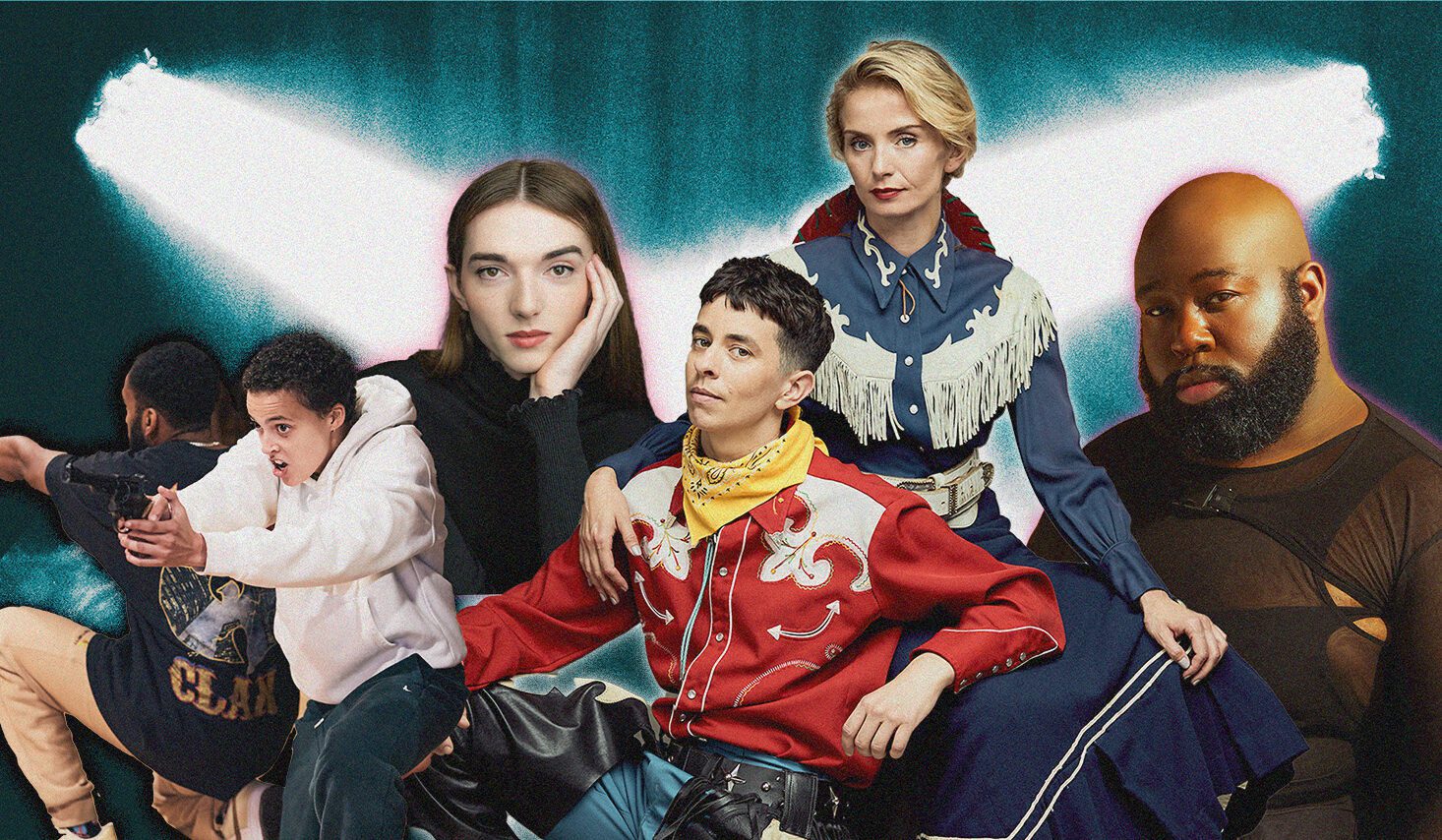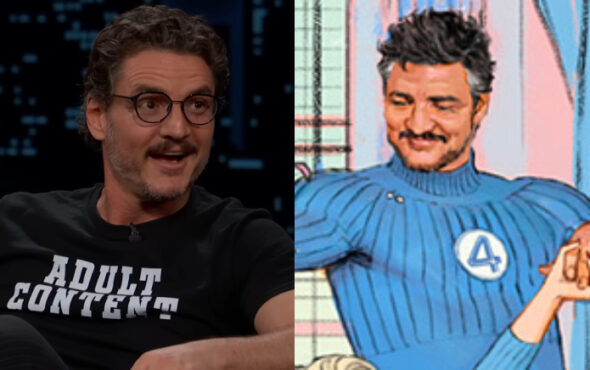
With queerphobic dogma rife over the past five years through news coverage, debates across social media and even from the House of Commons itself, the need for authentic representation of LGBTQIA+ stories is more pressing than ever – and theatre is emerging as an important avenue for these narratives.
In the UK, major successes have been had for queer storytelling on stage thanks to shows such as Everybody’s Talking About Jamie and Rob Madges’ My Sons A Queer (But What Can You Do?) and more recently the transfer of Pulitzer Prize-winning A Strange Loop, which transferred to the Barbican from Broadway this year.
But perhaps this influx of LGBTQIA+ productions shouldn’t be a surprise – theatre is a field with long-held associations with the queer community. Statistically, 13% of the UK’s workforce in theatres is LGBTQ+ and 58% of all LGBT applications for Arts Council funding were successful, higher than the average rate of 38% for all applicants in 2019-2020.
However, that’s not to say that theatre is immune from the wider anti-LGBTQIA+ sentiment being felt across UK society. Below, we speak to queer theatre practitioners about the wins in their field, as well as the battles they’ve yet to overcome.
Trans creatives taking centre stage
In 2022, Shakespeare’s Globe announced I,Joan as part of its schedule. Written by Charlie Josephine and starring Isobel Thom, the play retelling the life of Joan of Arc – the 15th century female saint and French military leader – received praise from left-leaning theatre critics whilst being heralded as the poster for “woke culture” by more conservative titles.
Joan being written as non-binary and played by a non-binary actor proved divisive, with Time Out London describing it as ‘The Most Controversial Play Of The Year’ in response to social media backlash from gender critical feminists who saw the work as an act of “female erasure”. However, as the play’s star Isobel Thom explained to GAY TIMES; “We’re not rewriting history, we’re just exploring our contemporary ideas in a historical context.”
The controversy surrounding I,Joan gestures to the risks of transplanting queer narratives from niche, community-centred venues and into mainstream theatres, where audiences may be less receptive to the ideas being explored – but this appears to be less of a deterrent and more of a motivation to theatre-makers like Josephine.
This season, Josephine’s new show Cowbois centring transmasculinity is set to premiere at the Royal Shakespeare Company and serves as an opportunity to upend traditional connotations surrounding the figure of the cowboy. “I wanted to disrupt the Hollywood version of cowboys – the white cis straight male gaze, that’s often racist and misogynistic,” Josephine explains. “I wanted to dive into the genre, embrace the swagger, and be cheeky with gender.”
While working in large institutions offers a larger platform and the potential for a bigger impact, Josephine admits that there’s still plenty of challenges – not just from the broader public, but the venues themselves.
“More recently I’ve been blessed with opportunities to make trans and queer work in straight venues and it’s been joyful and it’s been exhausting,” he explains. “I’ve learnt the hard way how to be of service whilst holding people accountable to do their own learning. You can’t make your queer artists unofficial and unpaid queer consultants.”
Queer representation on stage and behind the scenes
Despite a slow pace, the ongoing discourse advocating for queer people behind the scenes (not just in front of the camera) in the worlds of TV and film has led to learnings in the world of theatre, too. There’s a growing understanding that having queer talent at all levels of a show’s production and realisation is imperative to its authenticity .
For LJ Parkinson, who stars as Charley Parkhurst in Cowbois, the opportunity to work on a project written by a trans theatre-maker has allowed them to celebrate their identity in ways they weren’t able to as a young person. “I was never encouraged to be a cowboy when I was playing in my back garden with my friends as a kid because of the limitations of gender roles,” they explain. “But now, I’m an out and proud adult in 2023, and I’m getting to perform this legendary role at the RSC.”
More broadly, Parkinson underscores the importance of integrity when it comes to depicting trans stories. ”Trans people just want fair representation – and to keep telling our stories and sharing our experiences on the global stage,” they say. “We should be advocating for increased visibility and inclusion within society – and ensure these stories are told authentically”.
While shows like Cowbois and I,Joan are ensuring that trans people are writing and performing their stories, there is much more work to be done in ensuring that industry infrastructures are as inclusive as possible for all LGBTQIA+ people. For example, despite the wins for many queer stories being told across the stages of the UK, many trans performers and actors still struggle with clunky and outdated casting processes.
This includes Mary Malone, a trans woman and an actress who has starred in As You Like It at @sohoplace, as well as recently being announced as being part of the Doctor Who Christmas special episodes. “It’s funny how me and my girlfriends all get put up for the same handful of roles each year, and there we all are auditioning for ‘trans girl.’” she says. “It angers me because we are all totally different castings! Different ages, personalities, looks, everything, and yet in the eyes of the industry we are all just one type of woman. They rarely even think about the character further than their transness.”
As well as feeling tokenised through the casting process, Malone feels like venues don’t show adequate care for trans performers’ wellbeing off stage. “Theatres want us on their stages now and they didn’t before, but I’d say they don’t necessarily want to look after us or support us off stage. Perhaps there’s something in trans people selling them tickets,” she says.
With anti-trans sentiment becoming more normalised across the UK, trans performers have to weather additional risks – even when simply heading to work. “Theatre buildings, audiences, people in my workspace, and travelling to work, often remain unsafe to me,” Malone explains. “I really believe this is changing, but I know that’s through the efforts of trans people who take on that burden. I really hope things get better and fast, because it’s so sad that trans people have to keep their gifts from the world just because it isn’t safe enough to exist in right now.”
Depicting intersecting identities with pride
As well as holding space for the struggles that members of our community still face in the theatre world, it’s important to recognise where ground has been won.
Celebrating our successes is key, and when Ryan Calais Cameron’s play For Black Boys Who Have Considered Suicide When The Hue Gets Too Heavy transferred to the West End after a critically acclaimed run at The Royal Court Theatre, its depiction of Black masculinity was widely praised. Critics lauded the play as a work of art which didn’t hide away from discussing the realities of being Black and male in today’s society. Rather than sanitising its message for the audience’s sake, it centred the actual experiences of Black (and queer) men.
Emmanuel Akwafo, who appeared in the show as Pitch, can attest to the plays significance as a queer Black performer themselves. “I honestly felt a lot of pressure but so honoured to do such an important job,” he says. Particularly, Akwafo thought touching on suicide was a uniquely powerful component of the show. “Suicide in the Black LGBTQ+ community is one of the biggest challenges and is something I have also struggled with myself.”
The reaction to the play allowed Akwafo to see the importance of bringing the experience of queer Black men to the stage. “I remember after a performance a man was brought to tears and was so overwhelmed to see his life play out on stage,” he shares. “He needed to express how the show had helped him come out to his wife and children at the age of fifty. I am so appreciative to him for opening up to me and allowing the show to give him the confidence to do something he never thought he would do.”
As for the future, Akwafo is hopeful that queer individuals, particularly those of intersecting identities, will be able to play a part in broadening the scope of the characters we typically see on stage. “A director once told me to create the roles I didn’t see, and unfortunately in this industry I didn’t see a lot of queer Black roles, especially plus-sized, queer Black roles,” he says. “I want my real life experience to also be represented on stage and screen and that’s why it’s so important to me to have queer representation. Who knows, maybe one day there might just be a queer Black Romeo with thick thighs.”
As an audience, our appetite for authentic, evolved and new queer stories is vast. Theatre needs to accommodate for that, not only so it keeps up with the rest of the entertainment industry, but so LGBTQIA+ playwrights, theatre producers and performers feel like their industry values their lived experiences.
Trans-inclusive reforms need to be initiated within the casting processes and within theatre venues to ensure that trans people can rightfully exist within them. Otherwise, they risk losing the rich pools of talent that they only just about have a hold on. For us to continue taking up space in the biggest theatres the UK has to offer, the door has to be opened – but more importantly held open for generations of talent that will come after us.
Cowbois is on at the Swan Theatre, Stratford Upon Avon from 14th October – 18th November



